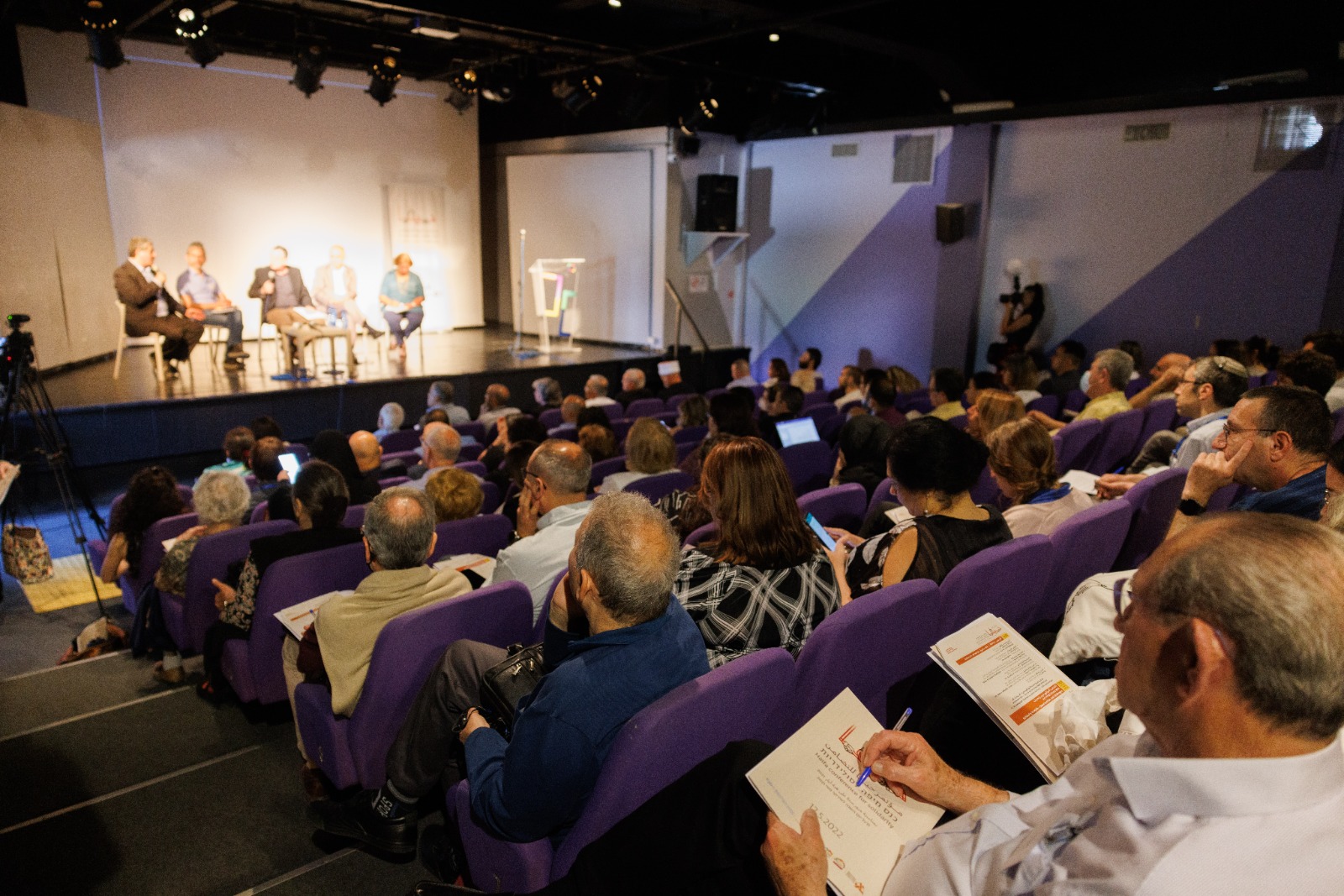
The Mossawa Center hosted the Haifa Solidarity Conference on the evening of May 12th to discuss economic, educational, planning, and health challenged in mixed cities, Haifa particularly.
Numerous challenges were discussed during the conference surrounding life in mixed cities, especially in the wake of the events of May 2021, one of the darkest periods in recent history for Haifa and other major mixed cities.
The conference was organized by a group of research and non-profit organizations working in cooperation with the Mossawa Center, the Social Development Association, the Haifa Boston Connection, and the University of Haifa. Over 250 people participated, including representatives of the health, economic, educational, and planning sectors of Haifa. The conference comprised 5 workshops aimed at discussing the education, health, planning, and housing systems, as well as the economy.
Activists and experts from different fields, in addition to civil, municipal, government, health, and economic institutions, participated in the conference panels.
Canadian Ambassador H.E. Lisa Stadelpauer opening statement spoke of Canada’s legacy of defending minority rights and setting about a diverse and intricate quilt of identities and ethnicities. "We are looking for the formula that grants all ethnic groups their full rights while retaining their individual identity and singularity."
Organizers of the conference called for amplification of partnership and cooperation between the different communities and cultures of Haifa.
Following the opening statements, The Carmel Music Association, led by Director Alber Billan, presented a traditional Middle Eastern musical performance.
Opportunities and Challenges to Solidarity in Haifa
The first workshop discussed the most important challenges that hinder solidarity in Haifa, especially in the wake of the events of last May that hugely disrupted life in the city.
Speakers shared personal recollections of their experiences during May and how building solidarity can act as preventative measure for future frictions and discords. Panelists were interviewed on the challenges faced by citizens of Haifa during the march of dignity and the impact of Nakba and regional wars and crises on the predicament of Arabs and Jews in Haifa. All speakers pointed to what Palestinian Arabs have been subjected to since the Nakba to May 2021, and the impact on the essence and future of the city.
There were several remarks on the lack of response and apathy from police regarding Palestinian Arab victims, as well as military backing of right-wing settler violence and harassment of Palestinian Arab residents.
Multicultural & Multilingual Planning in Haifa
The urban planning panel discussed the damaging effects of current urban planning on the intermingling and cooperation of different communities and neighborhoods, and pointed to the general neglect and crumbling infrastructure in Palestinian Arab localities and lack of clear planning. The neglect is most evident in neighborhoods like the Abbas neighborhood on the Carmel hill and the Istiqlal Mosque assets, which have substantial tourist and economic potential.
Issues also extend to the monopolization of properties and refusal to sell to Palestinian Arabs, the continued cramming and overcrowding of Palestinian Arab neighborhoods, and impassivity of mayors and the government.
Haifa’s Education System’s Role in Promoting Solidarity
The education panel discussed the shortcomings of the Haifa education system, in which the conditions of Palestinian Arab and Jewish public, private, and bilingual schools were reviewed.
The panel also touched on the inaccessibility of educational facilities – including schools and libraries – for the Palestinian Arab minority, the specific disparities in the education system in Haifa, the lack of kindergartens for Palestinian Arab youth near their homes, and the need to foster a more inclusive study curriculum in the country.
It is evident that the municipality of Haifa and the ministry of education do not encourage shared education in Haifa city. About 40% of Haifa's students receive independent education.
Haifa as an Economic and Regional Metropolis
The panel discussed the economic inequality and segregation in the country, and the tremendous role of last May’s events in perpetuating such issues.
The panel also discussed municipalities and their lack of funding from the government, the essential capacity of mixed schools and the need for nationalizing them, Palestinian Arab representation in universities and national companies, and Haifa’s role in the future of the Palestinian Arab presence in Israel.
There was a consensus that Haifa is a rough metropolitan city that needs to be reinvigorated due to its essential centrality for the north and the Galilee regions.
Solidarity in the Haifa Health System
The workshop discussed the challenges in the health system in addition to the disparities in health and healthcare between different demographics. Speakers emphasized the importance of closing the health gaps, and the need to allocate more resources in order to achieve a more inclusive and equitable healthcare system, as well as the state’s responsibility in halting environmental factors from exacerbating health issues (such as diabetes and obesity), and maintaining public awareness of health concerns.
The conference was concluded with a determined promise to initiate public organization and advocate for policy amendments at municipal and government rank.









